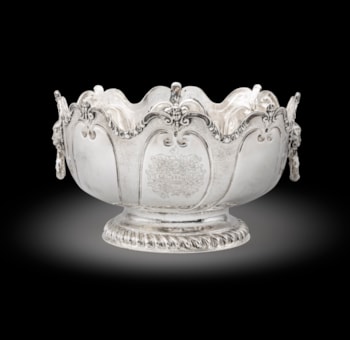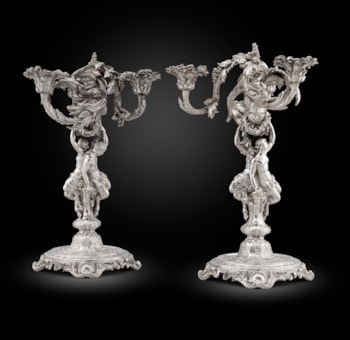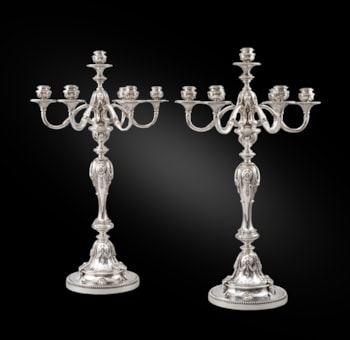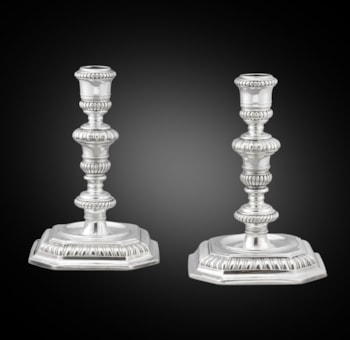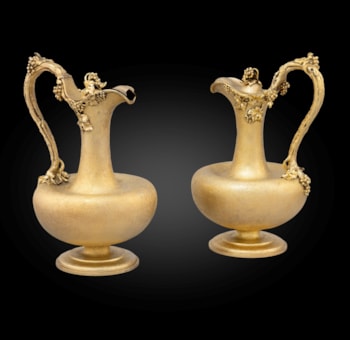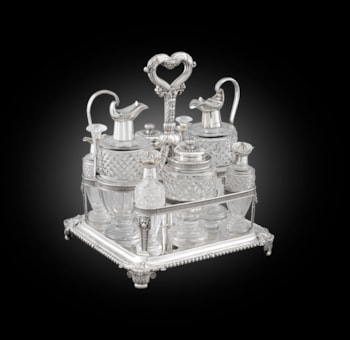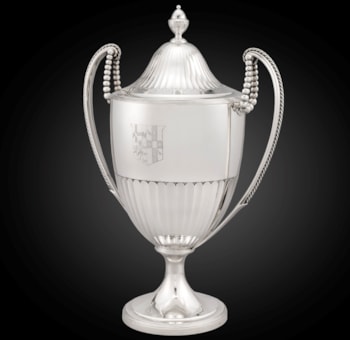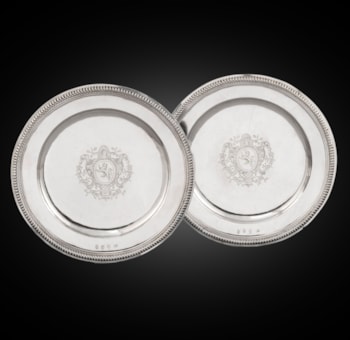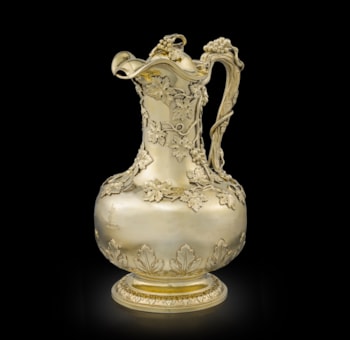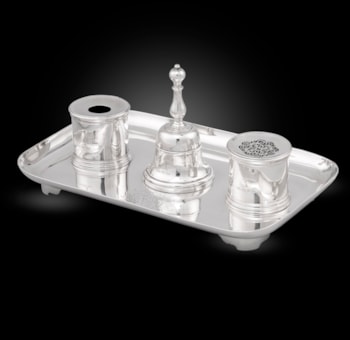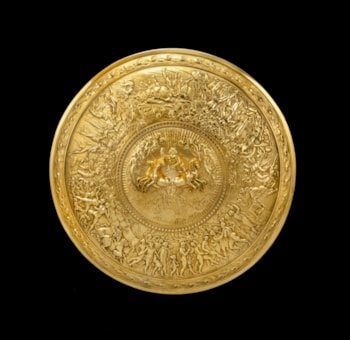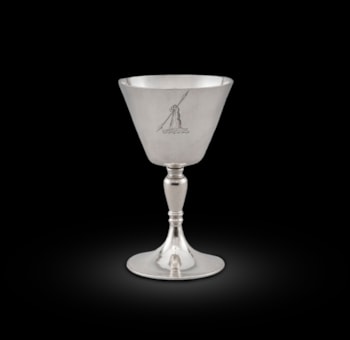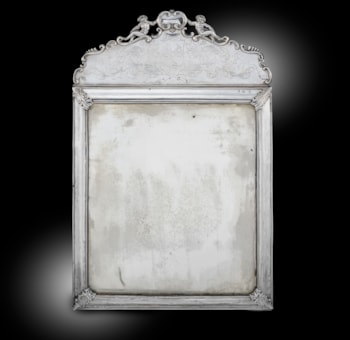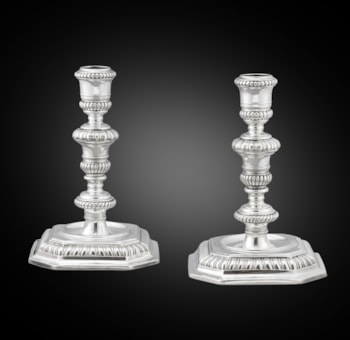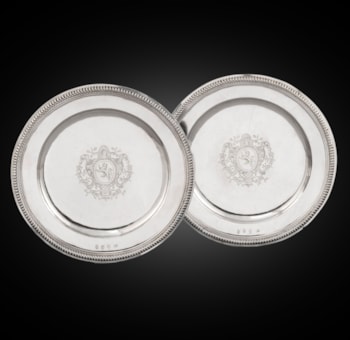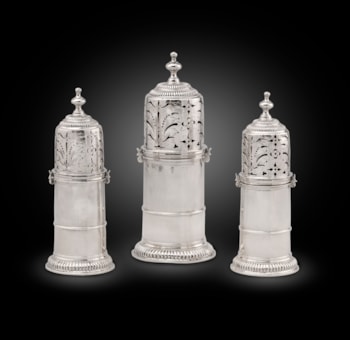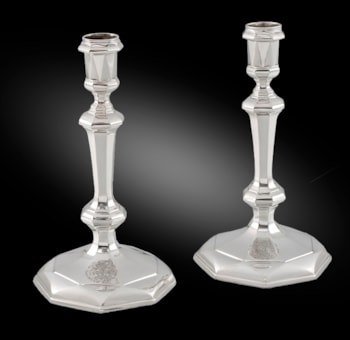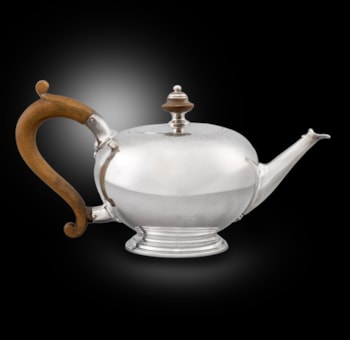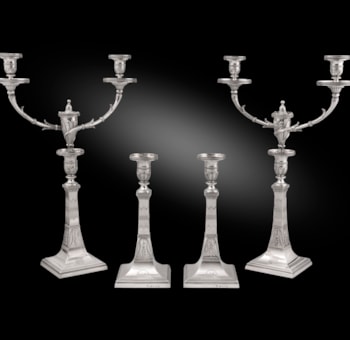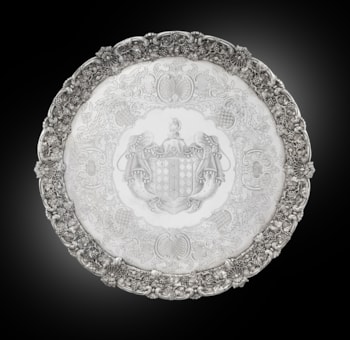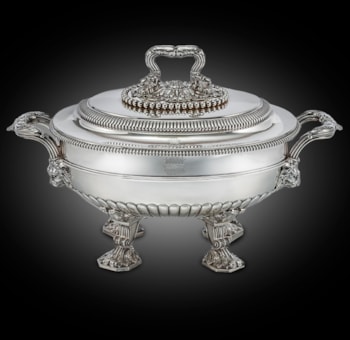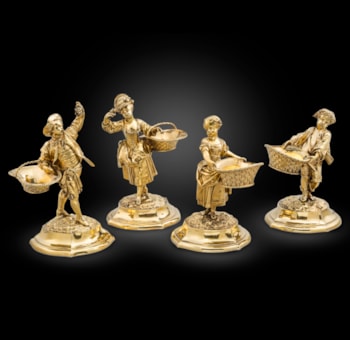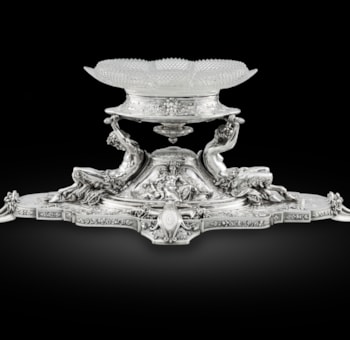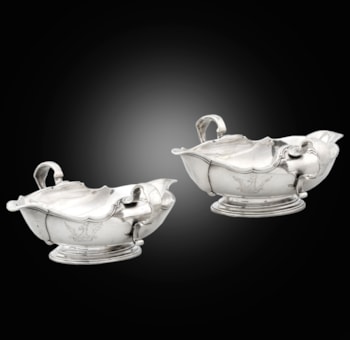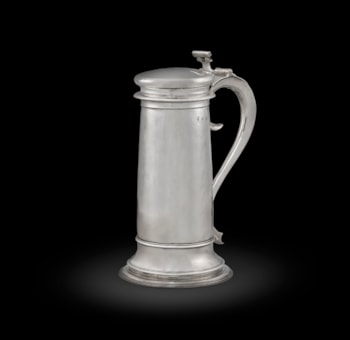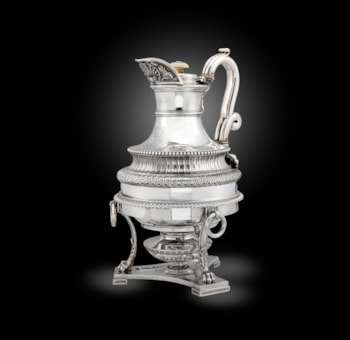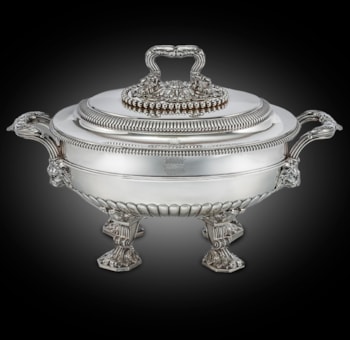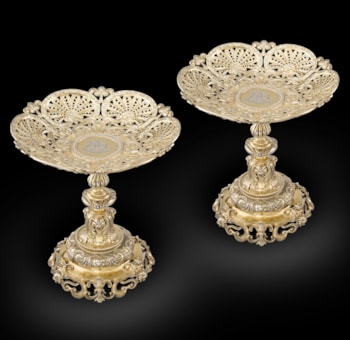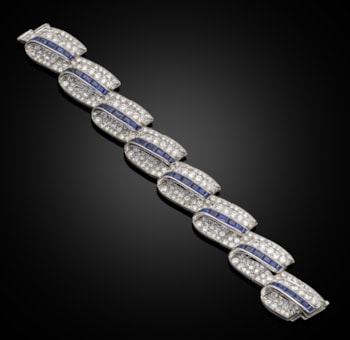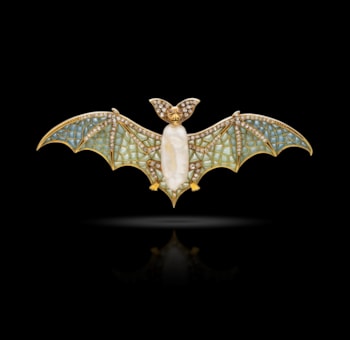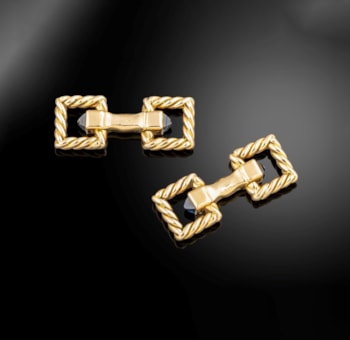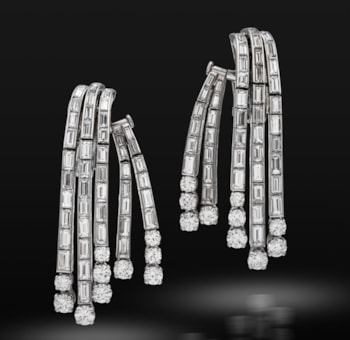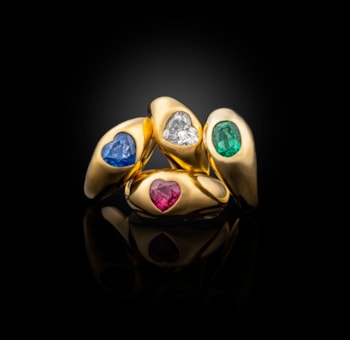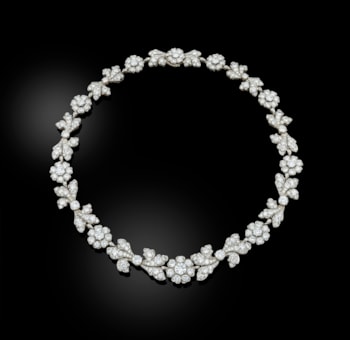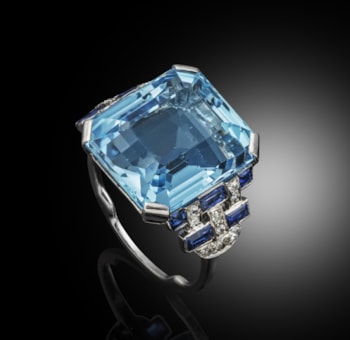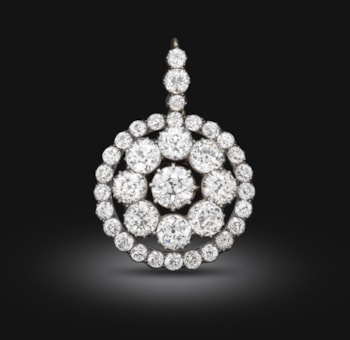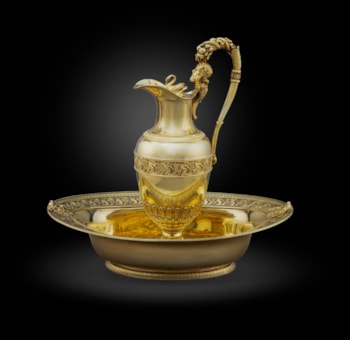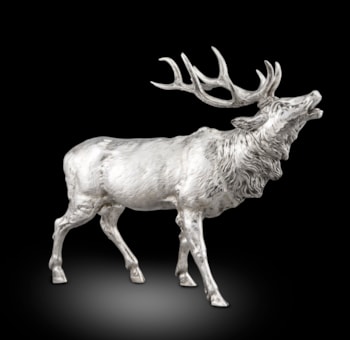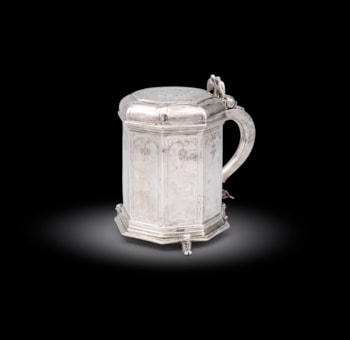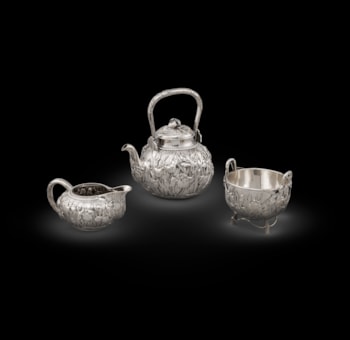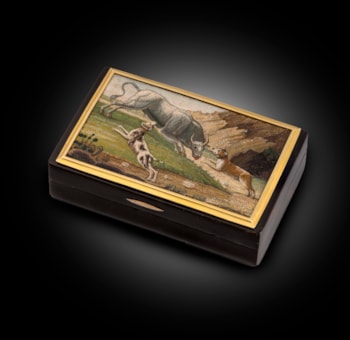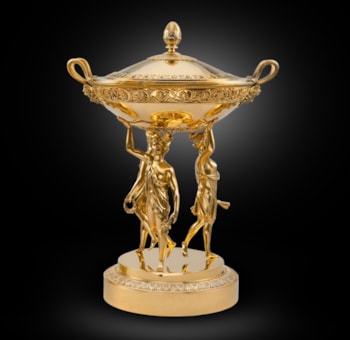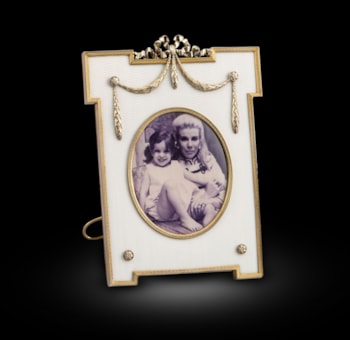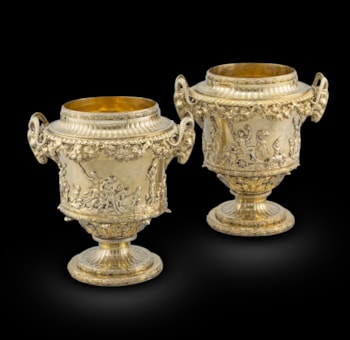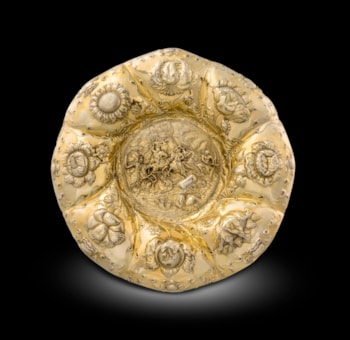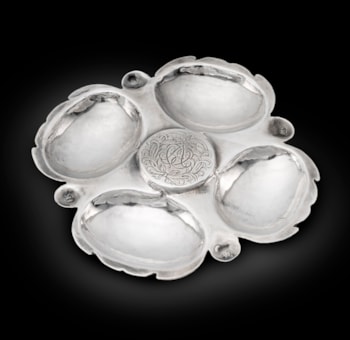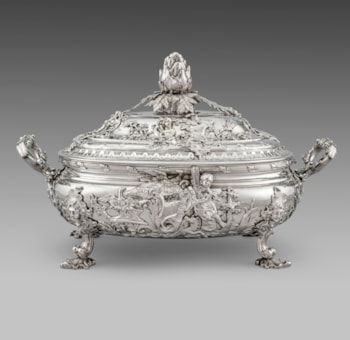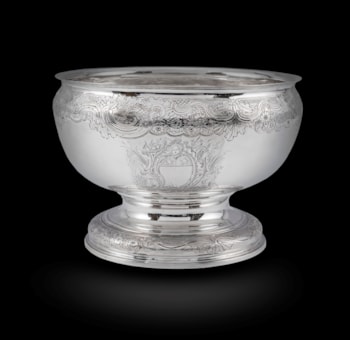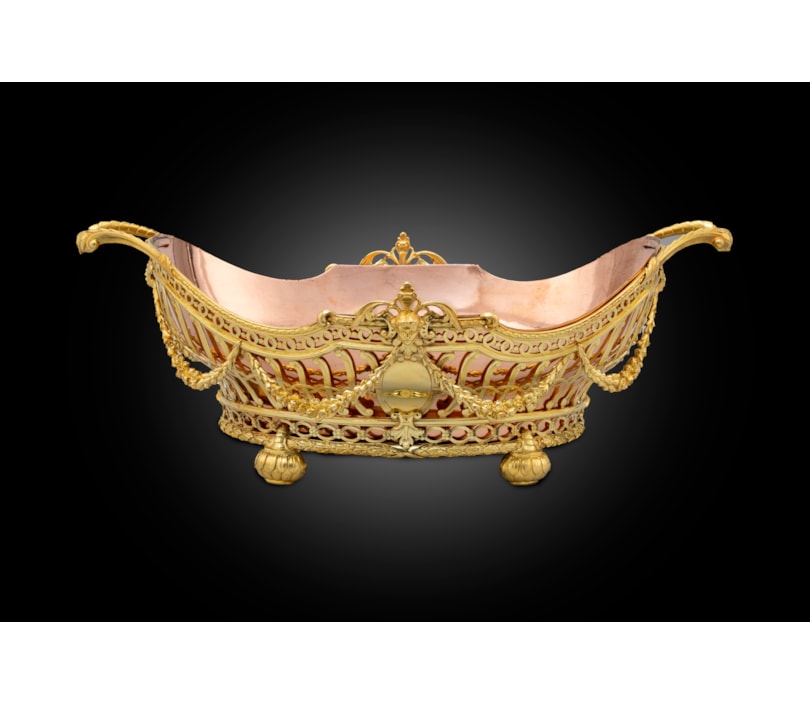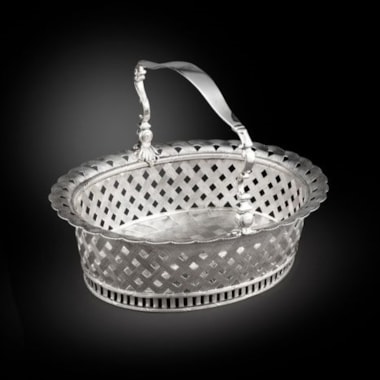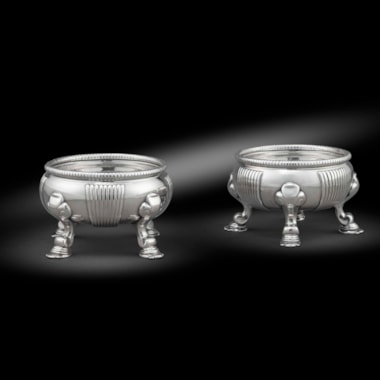The basket oval in shape, on ball feet applied with foliage. The basket with two scrolling quilted handles, the pierced sides with openwork decoration and swags. The basket centred with a cartouche on each side surmounted by a woman's mask holding garlands of flowers and foliage. The basket with a wonderful pigeon red copper liner.
The firm of Carrington was named after its founder John Bodman Carrington who established his manufacturing business at 130 Regent Street.
He was listed as a silversmith, goldsmith and jeweller working from the London premises of the Birmingham silversmiths G.R. Collis & Co. The business was re-styled Carrington & Co in 1880 and the firm specialised in extra strong silver plate for use in restaurants, hotels and ships.
By the early 1890s Carrington were advertising themselves as jewellers, diamond merchants, dealers in precious stones and manufacturing silversmiths. At this time the partners were John Carrington, William Carrington Smith and George Bruford. They were awarded the Royal Warrant by Queen Victoria and would go on to gain the warrants of Prince Albert, Edward VII and George V, as well as Nicholas I and II and Queen Alexandra of Russia. In 1893 they created the beautiful Dorset bow brooch for Queen Mary and in 1911 they set the famous Cullinan diamonds numbers III and IV into a brooch/ pendant for her, a jewel now owned by the Queen who affectionately refers to them as ‘Granny’s chips’.
John Carrington became Prime Warden of the Goldsmiths’ Company in 1903 and retired from his business in 1906 leaving W.C. Smith to continue as sole remaining partner. Carrington co-authored a book ‘The Plate of the Worshipful Company of Goldsmiths’ which was published shortly before his death in 1926. The firm was converted into a limited liability company in 1922 and was eventually bought out by the firm Collingwood.
You May Also Like




